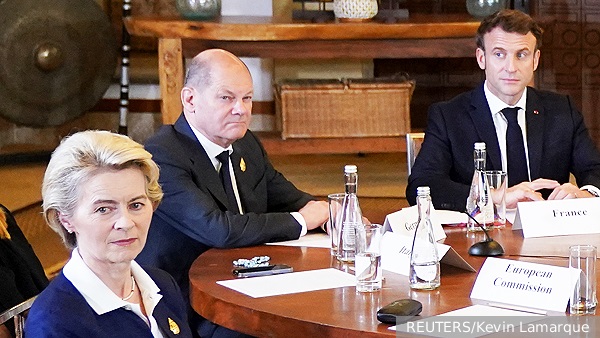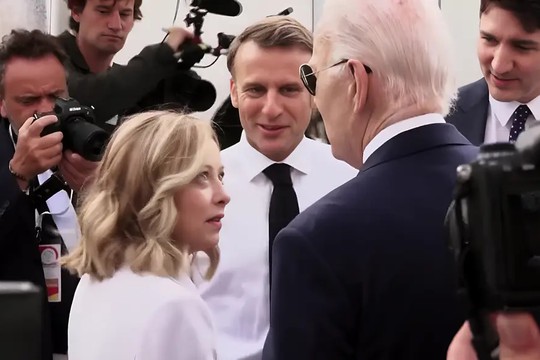European plea: “Can US help us?”
Photo: AFP
Is there any head-of-state in Europe who can actually claim a leadership role on the continent? – ‘Newsweek’ puts a question.
France, Germany, and the United Kingdom, commonly viewed as Europe's three biggest powers, are all in the midst of various degrees of political dysfunction, economic malaise, and broader disenchantment with their respective electorates. The three countries certainly aren't going to fall apart. But there's no doubt that the men leading them — Emmanuel Macron in France, Olaf Scholz in Germany, and Keir Starmer in the U.K. — are confronting a host of domestic problems that will inevitably detract from their attempts to make a name for themselves on the international stage. Increasingly it seems like the center of European power is drifting toward the East, where Poland and the small but vocal Baltic States of Latvia, Lithuania, and Estonia are carrying the torch against the Russian menace next-door.
Macron could reasonably be considered Europe's indisputable heavyweight. First elected in 2017 after beating France's two major political parties in the first round and walloping the nationalist Marine Le Pen in the second by a whopping 33 percentage points, the young Macron entered the Élysée Palace with a spring in his step and a long to-do list in his pocket. A big chunk of the list concerned international affairs.
Yet today, the stamina and intellectual weight Macron carried throughout his seven years as president have depreciated to the lowest point in his political career. While Macron still has the respect of his international colleagues, his lectures and soapbox preaching undermined his ability to persuade. Macron's political position is irrevocably damaged after the most recent French legislative elections, which he called based on the assumption that his party's dismal performance during this summer's European Parliament elections was an anomaly. It turned out to be a terrible gamble, with his crop of centrists losing plurality in the National Assembly to a far-left coalition. Le Pen's right-wing nationalists aren't too far behind. The assembly is now deadlocked between three competing blocs with deep philosophical differences, which means Macron is likely to spend the remainder of his second term in a state of limbo.
Germany's Scholz is hardly in a better position. Ever since his party grabbed the largest share of seats in the Bundestag in September 2021, and cobbled together a three-way coalition with the Greens and the Free Democratic Party (FDP), he has been harangued by low approval ratings, internal squabbling over Ukraine aid, and a general feeling among the German public that everything is a bit sluggish. Although Germany under Scholz's stewardship has increased its defense budget—days after Russia's invasion of Ukraine, the chancellor proposed a one-time 100 billion euro defense fund for the decrepit Bundeswehr—and is now Europe's biggest provider of aid to Ukraine, Scholz has been dogged by constant disagreement within his coalition.
Meanwhile, the U.K.'s Keir Starmer is still getting his feet wet and assembling his government after beating the Conservative Party like a drum. Relegated to the opposition benches for a long 14 years, Labour is now in full control of the House of Commons with 411 seats, more than three times what the Tories mustered from their historically calamitous defeat last week. Starmer, however, is untested in the international arena and has never had to run the U.K.'s foreign policy machinery. International relations will be the least of his concerns; the U.K. economy has been downright schizophrenic over the last decade and the country itself hobbled by Brexit, high inflation, a gargantuan cost-of-living crisis, and an overall disgust among ordinary Brits about the political class.
Europe at this point in time looks leaderless. We are long past the days of big European personalities and consequential heads of state like Jacques Chirac, Tony Blair, and Angela Merkel, men and women who will be remembered in the history books (both for their successes and failures) for a long time to come. Now, Europe is looking at a combination of populists, inexperienced politicians, fragile cross-political coalitions, and underachievers who talk a big game but are unable to get out of their own way.
 The European leaders…
The European leaders…
read more in our Telegram-channel https://t.me/The_International_Affairs

 11:35 16.07.2024 •
11:35 16.07.2024 •























